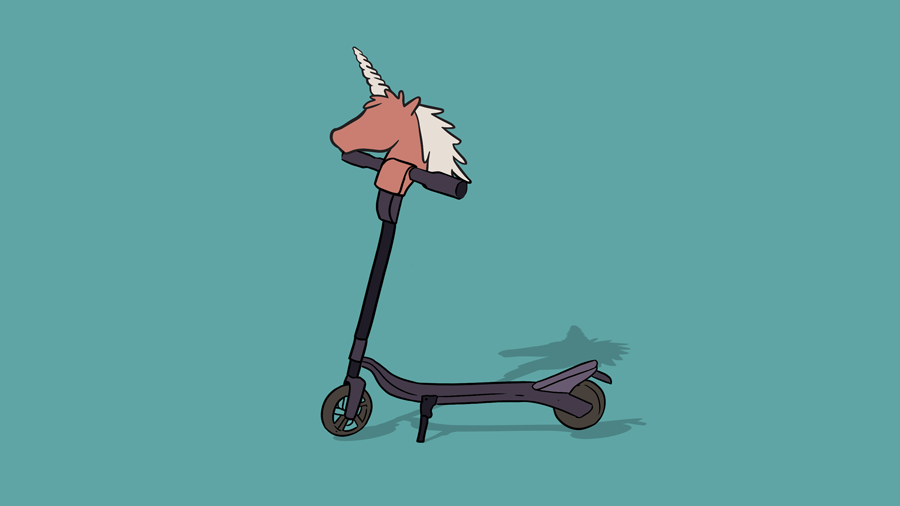Morning Markets: A European startup wants to change the scooter game. Given what we’ve learned recently about the industry, does that seem possible?
Subscribe to the Crunchbase Daily
Happy Friday and welcome to the end of the week. Let’s wrap on something that we haven’t written about in what feels like months: Scooters.
Yes, everyone’s former summer fling is back in the headlines this week with news that Dott, a European scooter company, has raised another round of capital, this time $34 million.
The new funds come after the firm raised $23 million previously (Crunchbase lists the total as $56.6 million, but we can round as it’s nearly the weekend). Dott is based in Amsterdam and was founded just last year. (Dott’s Series A has been led by EQT Ventures and Naspers, with a host of other capital sources taking part.)
Why talk about a relatively minor scooter round today? Two reasons. First, Dott is trying to do something operationally different inside the scooter space. Second, we’ve learned about scooters recently. Let’s explore.
Dott’s Gig
American scooter giants Lime and Bird depend on crowd labor to charge their scooters. This idea wound up providing lucrative employment for teens and jokes for the Internet. Dott is going the other direction, hiring more of its staff.
Here’s TechCrunch on the setup:
The company has its own warehouses to charge and repair vehicles. There’s no juicer who collect[s] scooters at night and charge[s] them at home. Dott hires full-time employees and works with third-party logistics providers.
TechCrunch goes on to note that Dott is local-government friendly, and deploys “reasonable” numbers of scooters to new markets.
In short, if Lime and Bird’s attempts to ape Uber’s famous speed of execution and brashness were the initial mold for their industry, Dott is trying to break it by being polite about the whole thing, coloring inside the lines and paying its people more fairly.
I can hear the capitalist in your heart sputter, saying something like this: “But if Lime and Bird are losing so much money, how can Dott afford to avoid gig workers as a way to lower labor costs?” I don’t know. But what we can do is go over a few things that we’ve seen recently from scooter companies, and see if any of it can help us understand more fully.
Bumpy Paths
This morning I went back through some of scooterdom’s recent issues. What follows isn’t exhaustive, but goes to show the sorts of issues that Bird and Lime have had recently:
- Recall in 2018 when Uber was said to consider buying either Bird or Lime? That didn’t bear out.
- Bird underwent layoffs in March of this year. That’s not a very good sign from a company that has raised a lot of money.
- And then Lime swapped out its CEO.
- The meme of people throwing scooters into the lake or river or pond or stream is not merely a Bay Area problem. Scooters aren’t safe in other states as well we’ve recently learned.
- And scooters aren’t welcome in Nashville anymore as of late June. A pilot program is over after someone died.
And on and on, you can find a lot more of the same.
How I read the above is that the Bird and Lime model is now bogged down in the reality that seems to settle in after a period of what Silicon Valley loves to call “hypergrowth.” Except in the case of the scooter princes, Uber had already taught the local magistrates a trick or two when it blew through their fiefdoms years before.
By the time scooters came to town, the principalities were ready, and it’s slowing Lime and Bird’s rise in America.
If that’s a good thing or a fair thing or a bad thing or a symbol of American decline is up to debate, but it seems to be fact that Bird and Lime aren’t having as easy a go of their jobs today as they did a year ago.
Which brings us back to Dott. Initially, I thought that if the go-fast, and avoid-hiring model that Bird and Lime have undertaken is struggling, surely what Dott is up to will have an even harder time in the market. But there is a cost to moving fast, a price to pay for putting speed first.
Perhaps Dott can show that a more deliberate, accommodating, and employee-inclusive model can work in 2019. Now that would be contrarian. Now that would be disruptive.
Illustration: Li-Anne Dias.

Stay up to date with recent funding rounds, acquisitions, and more with the Crunchbase Daily.



![Illustration of a guy watering plants with a blocked hose - Global [Dom Guzman]](https://news.crunchbase.com/wp-content/uploads/quarterly-global-3-300x168.jpg)
67.1K Followers